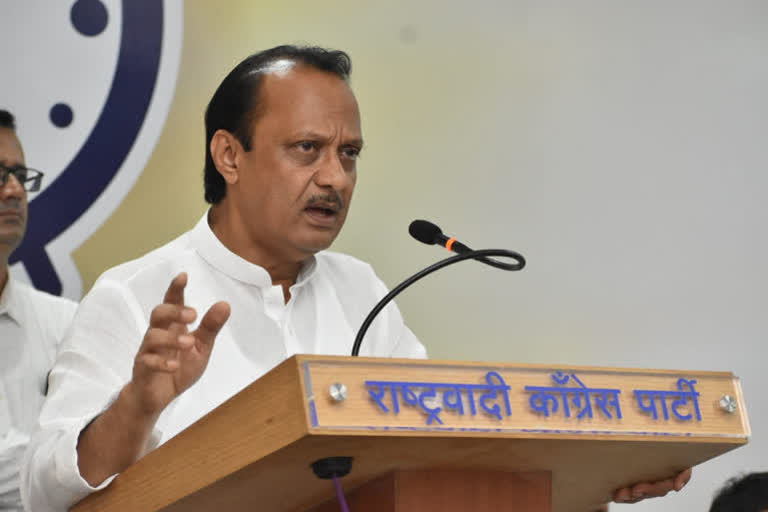Pune: Maharashtra Deputy Chief Minister Ajit Pawar on Friday said there was no vendetta behind the decision to launch a probe into the Jalyukt Shivar scheme, and
claimed that the water conservation minister in the previous Devendra Fadnavis government had himself admitted to "irregularities" in it.
The state government had on Wednesday ordered a probe into the project and announced on Thursday that a Special Investigation Team (SIT) would investigate it as the CAG had raised questions on the quality of work and results achieved.
The BJP has alleged that there was "political vendetta" behind the decision to conduct a probe.
The 'Jalyukt Shivar Abhiyaan', a pet project of Devendra Fadnavis, was launched in 2014 with the objective of making Maharashtra drought-free by 2019.
"The probe has not been announced intentionally or out of vendetta. This is not deliberate. After the CAG report was discussed in the cabinet, the chief minister said a probe should be conducted," Pawar told reporters here.
He said there was no need to look into a political angle into the probe being ordered.
"I can recall that the then water conservation minister Tanaji Sawant in the Fadnavis government had admitted in the upper house (Legislative Council) about irregularities in the Jalyukt Shivar scheme," Pawar said.
"Bring out the records. It was he who made this kind of statement and now an inquiry will take place," Pawar added.
The Jalyukt project involved deepening and widening of streams, construction of cement and earthen stop dams, work on nullahs and digging of farm ponds.
Shiv Sena, whose president Uddhav Thackeray is now the state chief minister, was also a part of the Fadnavis-led government during 2014-2019.
However, the Comptroller and Auditor General (CAG) in its report submitted to the state legislature last month had observed that the scheme, under which Rs 9,633.75 crore were spent, was not much effective.
It had little impact in achieving water neutrality and increasing the groundwater level and its execution was characterized by lack of transparency, the CAG had said.



